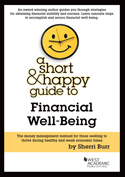by Sherri Burr
What do President Abraham Lincoln, actor James Dean, and business mogul Howard Hughes have in common? If you guessed that they all died without wills, you would be correct. In any given year, approximately one-half to two-thirds of all deceased Americans expire intestate, or without wills.
The reasons for not making a will are many. Some, like Abraham Lincoln and James Dean, just never got around to it. They both died suddenly. Others, like Howard Hughes, may be superstitious, afraid to give others incentives to wish or plan for their early exit to the business arena in the sky.
Whatever the excuse, to die without a will is to give the state the authority to decide how your estate will be divided. Your surviving relatives will either accept the outcome or contest it. The brawl between billionaire Howard Hughes’ distant relatives was settled in 1996, 20 years after his demise. It cost $20 million in legal fees.
So what does this mean to you as a writer? Simply put, some of your most important estate assets may be the copyrights in your work.
Dr. Martin Luther King, Jr. can serve as an inspiration to other writers. King copyrighted everything, his speeches, editorials, books, and other writings. He may have anticipated that an early death would lesson his family’s means of support. As a consequence, his estate, which was valued at $66,492.29 after his assassination in 1968, is now worth several million.
Currently, copyrights endure for the lifetime of the author, plus 70 years. This means that you can plan to give away your copyrights for up to 70 years after your death. The copyright contains six rights: (1) the right to copy, (2) the right to adapt or prepare derivative works, (3) the right to economically exploit the work through sale, lease, rental, or other transfer, (4) the right of public performance, (5) the right of public display, and (6) the right of digital audio transmission.
You can assign all these rights to one person, or divide them up. A romance novelist, for example, could devise the movie rights to one child and the translation rights to a second, or all the adaptation rights to a third. A playwright could leave public performance rights to grandchildren.
The possibilities are limited only by your imagination. When meeting with an attorney to prepare your will, be sure to inform him or her that you are a writer and that you wish to make provisions for your copyrights. Even if you write your will from online software, remember your copyrights.
 Sherri Burr is the Regents’ Professor of Law at the University of New Mexico School of Law where she teaches Entertainment Law, Intellectual Property Law, and Art Law. A graduate of Mount Holyoke College, Princeton University, and the Yale Law School, she has authored or co-authored 20 books, including A Short and Happy Guide to Financial Well-Being (West Academic, 2014). Sherri is also a long-time member of SouthWest Writers and a regular contributor to the organization’s newsletter SouthWest Sage.
Sherri Burr is the Regents’ Professor of Law at the University of New Mexico School of Law where she teaches Entertainment Law, Intellectual Property Law, and Art Law. A graduate of Mount Holyoke College, Princeton University, and the Yale Law School, she has authored or co-authored 20 books, including A Short and Happy Guide to Financial Well-Being (West Academic, 2014). Sherri is also a long-time member of SouthWest Writers and a regular contributor to the organization’s newsletter SouthWest Sage.
This article was originally published in the January 2008 issue of SouthWest Sage and is reprinted here by permission of the author.



Leave a Reply